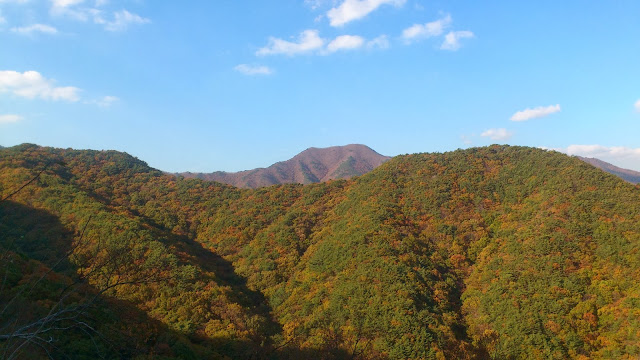I didn't edit this so just deal with it.
1. How do you say seasoned vegetables in Korean?
2. How do you say steamed rice mixed with various other grains in Korean?
3. How do you say thin noodles mixed with seasoned vegetables in Korean?
4. How to you say unfiltered rice wine in Korean?
5. How d you say a Korean see-saw game in Korean?
First off, nobody got the first two questions right, nobody. A) no one knew what seasoned meant, or the idea of various grains. It really pissed me off that she but these kids through that. The other aggravating thing is that asking someone about how do you say a Korean thing in Korean. The CT has all of these "Korean" things that I assumed were all specific to Korea until I pulled my head out of the sand and realized she's got a big'ol pride boner for Korea. Example? Okay, Korean socks, what's so special about them? They are white and have a pattern (one stripe). These are not Korean socks. They're just regular fucking socks. The other things she programs these kids into thinking is important is all these archaic hunks of crap that no one uses. Fun fact a Korean "laundry machine" is a slab of concrete a foot off the ground and two wooden bats. Seriously, this is a MACHINE!!!???? I have no words to describe it but if I saw one in real life I'd ask the professor who took me back in time: "Professor, who put these sticks on this poorly made bench?"
I'm sorry I love this place but I don't want to learn about everything that makes this place special dating back to whenever Moses was playing hacky-sack. I'm not totally involved in my history, as far as I'm concerned my family's history started with my grandfather and maybe that's why I have no inclination to learn about these really weird things with incredibly awkward definition (a Korean sedan chair??). I appreciate the effort of the editors trying to present Korea as this cultural beauty packed with tradition and hoopla but frankly I'd prefer teaching them about world culture.
This country is physically and mentally isolated in the world. A peninsula of the mind if you will. We have this little section in each textbook called "Around the World" where they relate the lesson to something in America or Europe. Frankly that's not enough for me because it makes you believe that the world opens and closes on America. Nothing against Americans (but this happened) it's just I'm teaching the future and I think having a world's perspective is the best way to grow towards a better place to live in. I guess I've calmed down, thinking is still hard.






















